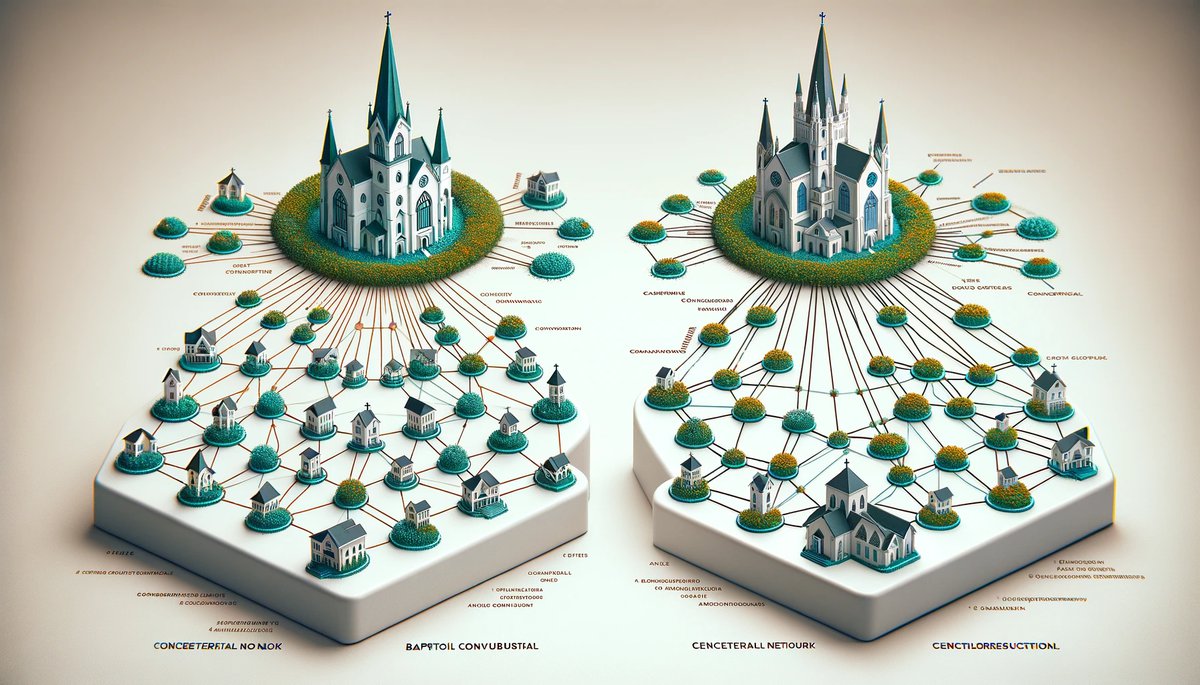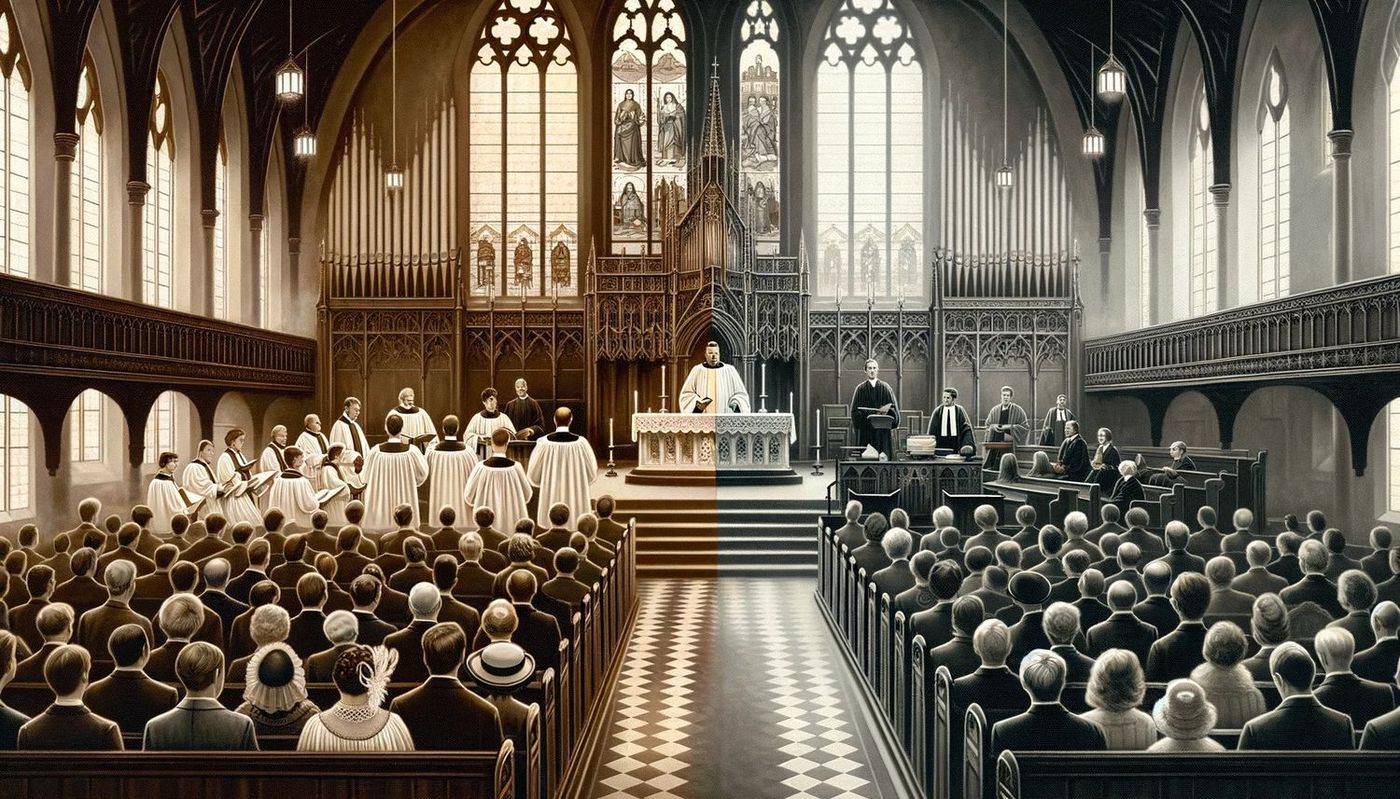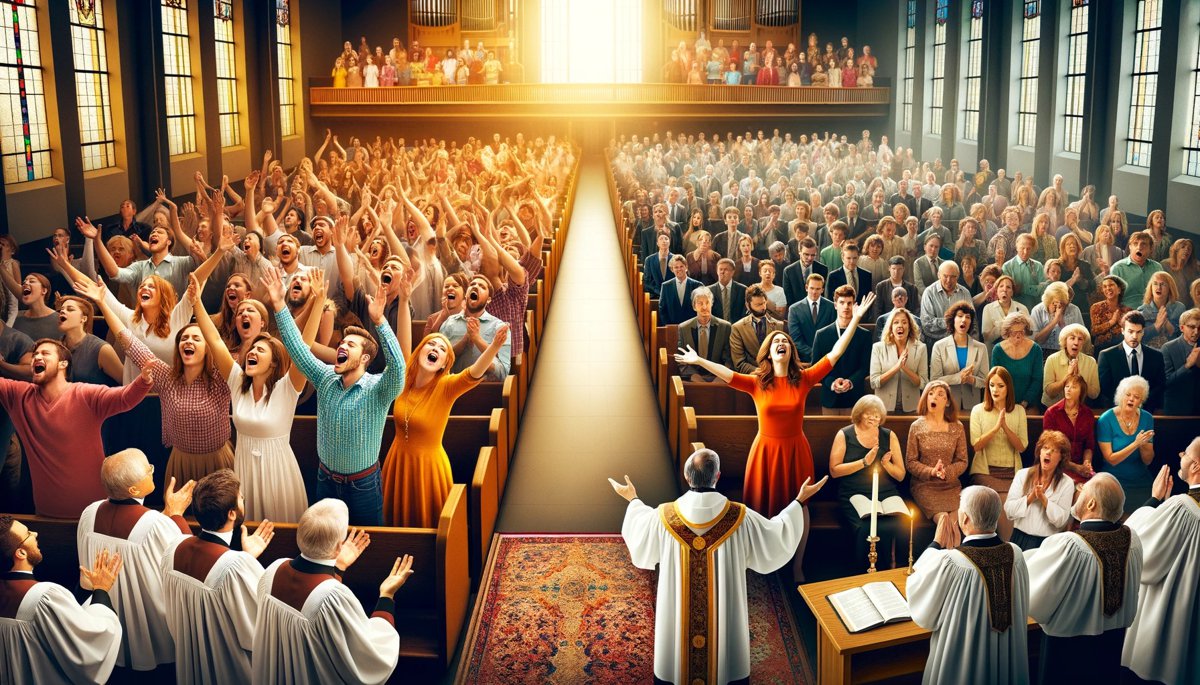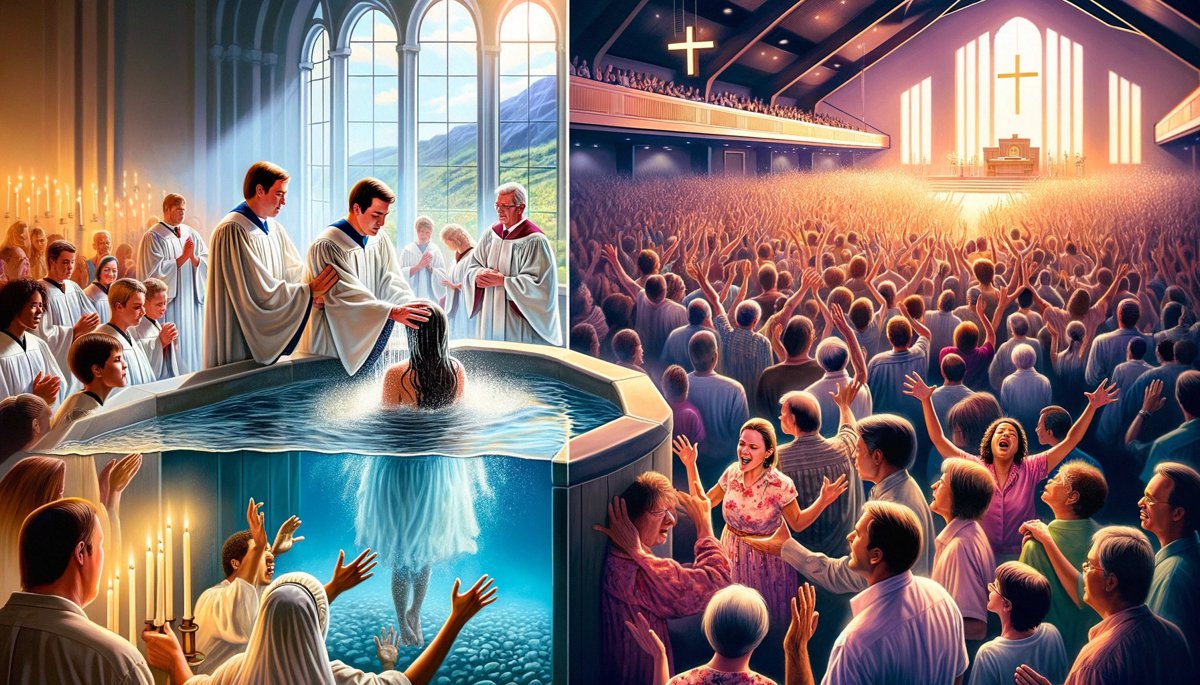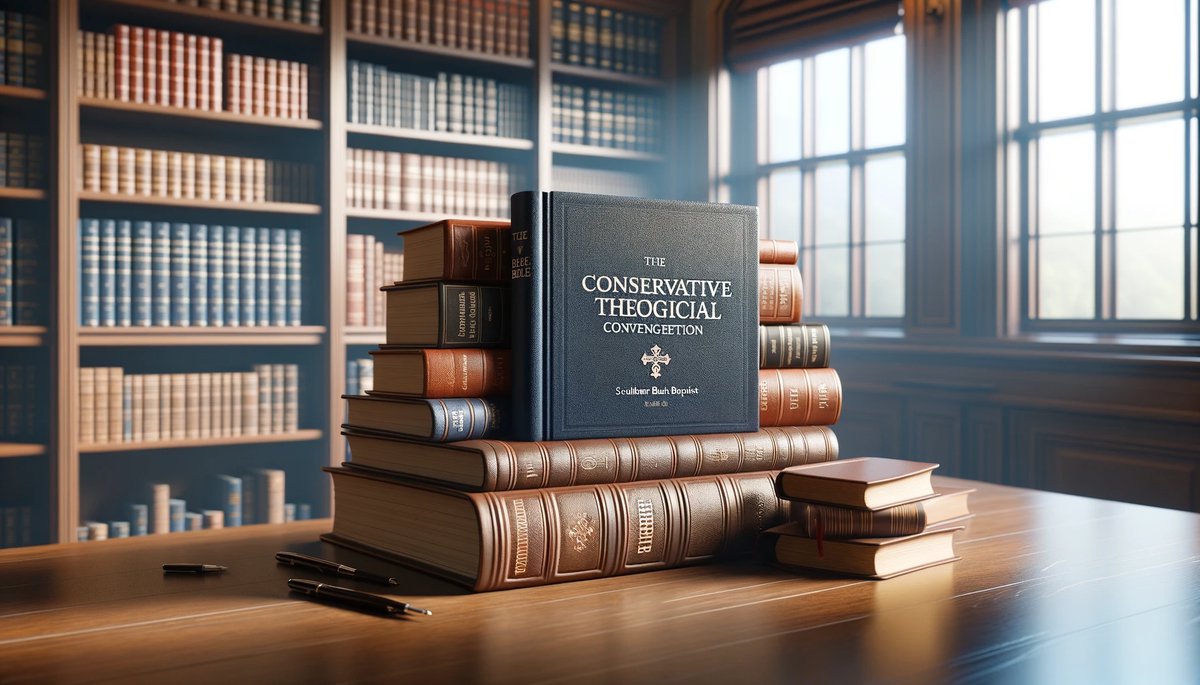Home>Theology and Spirituality>What Is The Difference Between Baptist And Orthodox


Theology and Spirituality
What Is The Difference Between Baptist And Orthodox
Published: February 21, 2024
Peter Smith, Editorial Director at Christian.net, combines deep insights into faith, politics, and culture to lead content creation that resonates widely. Awarded for his contributions to religious discourse, he previously headed a major organization for religious communicators, enhancing dialogue on faith's societal impacts.
Discover the contrasting beliefs and practices of Baptist and Orthodox Christianity in this insightful comparison of theology and spirituality.
(Many of the links in this article redirect to a specific reviewed product. Your purchase of these products through affiliate links helps to generate commission for Christian.net, at no extra cost. Learn more)
Table of Contents
Introduction
When exploring the rich tapestry of Christian faith, one encounters a diverse array of denominations, each with its own distinct traditions, beliefs, and practices. Among the myriad branches of Christianity, the Baptist and Orthodox traditions stand out as prominent and deeply rooted expressions of the Christian faith. While both traditions share a foundational commitment to the teachings of Jesus Christ, they diverge in significant ways, encompassing theological perspectives, worship practices, and ecclesiastical structures.
Understanding the differences between the Baptist and Orthodox traditions requires a nuanced exploration of their respective histories, doctrines, and cultural influences. By delving into the core tenets of each tradition, we can gain a deeper appreciation for the unique expressions of Christian faith that have evolved over centuries. This exploration will shed light on the distinct theological emphases, worship styles, and spiritual outlooks that distinguish these two traditions within the broader tapestry of Christianity.
As we embark on this comparative journey, it is essential to approach the Baptist and Orthodox traditions with an open heart and a spirit of curiosity. By embracing a posture of respectful inquiry, we can glean insights that enrich our understanding of the diverse ways in which Christians seek to embody their faith. Through this exploration, we will uncover the theological nuances, spiritual practices, and communal ethos that shape the Baptist and Orthodox traditions, fostering a deeper understanding of their respective contributions to the Christian narrative.
Beliefs and Doctrines
The Baptist tradition is characterized by its emphasis on individual faith and personal conversion. Central to Baptist beliefs is the concept of "soul competency," which asserts that every individual has the capacity to directly connect with God without the need for intercession by clergy or other authorities. This belief underscores the Baptist commitment to the priesthood of all believers, affirming the autonomy of the local church and the freedom of each believer to interpret and apply the teachings of the Bible.
In contrast, the Orthodox tradition places a strong emphasis on the authority of sacred tradition, alongside the Scriptures, as a source of divine revelation. Orthodox theology is deeply rooted in the early ecumenical councils and the writings of the Church Fathers, which serve as foundational pillars of doctrinal orthodoxy. The concept of theosis, or divinization, is central to Orthodox theology, emphasizing the transformative process through which believers are called to participate in the divine nature through the grace of God.
While both traditions affirm the significance of the Bible, they differ in their approaches to interpreting and applying its teachings. Baptists generally adhere to a literal interpretation of the Scriptures, prioritizing individual conscience and personal conviction in matters of faith and practice. In contrast, the Orthodox tradition embraces a more symbolic and allegorical approach to biblical interpretation, drawing upon the rich tapestry of patristic exegesis and the liturgical life of the Church to illuminate the deeper spiritual meanings embedded within the biblical text.
Furthermore, Baptists adhere to the belief in believer's baptism, which is typically administered to individuals who have made a personal profession of faith. This practice underscores the Baptist commitment to the symbolic significance of baptism as an outward expression of inner transformation and spiritual rebirth. In contrast, the Orthodox tradition practices infant baptism, viewing it as a sacrament through which infants are incorporated into the life of the Church and receive the grace of God from an early age.
In essence, the Baptist and Orthodox traditions embody distinct theological emphases and doctrinal perspectives, reflecting their unique historical trajectories and cultural contexts. While Baptists emphasize individual faith and personal autonomy in matters of belief, the Orthodox tradition upholds the authority of sacred tradition and the transformative journey of theosis as central pillars of its doctrinal framework. These divergent theological perspectives contribute to the rich tapestry of Christian faith, offering unique insights into the multifaceted expressions of Christian belief and doctrine.
Worship Practices
Worship lies at the heart of religious expression, serving as a sacred conduit through which believers seek to commune with the divine. In the Baptist tradition, worship practices are characterized by a strong emphasis on congregational participation and the proclamation of the Word. Central to Baptist worship is the preaching of sermons, which serve as a focal point for spiritual edification and communal reflection on the teachings of the Bible. Hymn singing also holds a prominent place in Baptist worship, with congregational hymnody serving as a means of collective praise and adoration.
In contrast, Orthodox worship is marked by its rich liturgical tapestry, encompassing intricate rituals, incense, iconography, and choral chants. The Divine Liturgy, the central act of Orthodox worship, unfolds as a sacred journey through the various movements of prayer, scripture readings, and Eucharistic celebration. The use of icons, venerated as windows to the heavenly realm, adds a visual dimension to Orthodox worship, inviting worshippers to participate in a multisensory encounter with the divine mysteries.
The Baptist tradition typically embraces a more informal and spontaneous style of worship, often characterized by extemporaneous prayers and heartfelt expressions of personal faith. In contrast, Orthodox worship follows a carefully choreographed order, guided by the liturgical calendar and the rhythmic cycle of feasts and fasts. The use of liturgical vestments, candles, and sacred music creates a reverent ambiance that invites worshippers to enter into a sacred space imbued with timeless beauty and spiritual depth.
While Baptist worship often takes place in relatively simple church buildings, Orthodox worship is conducted in ornate and iconographically adorned sanctuaries, reflecting the tradition's emphasis on the transcendent beauty of the divine presence. The use of incense in Orthodox worship serves as a symbol of the prayers of the faithful rising to heaven, infusing the sacred space with a fragrant reminder of the spiritual incense that ascends before the throne of God.
In essence, the worship practices of the Baptist and Orthodox traditions reflect their distinctive approaches to encountering the divine presence. While Baptists emphasize congregational participation and the centrality of preaching and hymnody, Orthodox worship unfolds as a choreographed symphony of liturgical movements, inviting worshippers to enter into a sacred dance of prayer, ritual, and sacramental encounter with the living God. These diverse worship practices enrich the tapestry of Christian spirituality, offering unique pathways for believers to engage in the timeless dialogue between humanity and the divine.
Church Structure and Leadership
The Baptist and Orthodox traditions exhibit distinct approaches to church structure and leadership, reflecting their respective ecclesiological frameworks and historical developments. In the Baptist tradition, the principle of congregational autonomy holds sway, emphasizing the self-governing nature of local churches. Each Baptist congregation operates independently, with its own governance structure and decision-making processes. This congregational polity underscores the belief in the priesthood of all believers, affirming the spiritual equality of all members and the absence of hierarchical authority beyond the local church level.
Conversely, the Orthodox tradition embraces a hierarchical structure, with a clear delineation of authority and a network of bishops, priests, and deacons overseeing the spiritual life of the Church. At the apex of the Orthodox ecclesiastical hierarchy stands the Ecumenical Patriarch, who serves as a symbol of unity and spiritual leadership for the global Orthodox communion. This hierarchical model reflects the Orthodox emphasis on apostolic succession and the continuity of episcopal authority traced back to the early Christian Church.
Furthermore, the Baptist tradition often features a democratic decision-making process, with congregational meetings and votes shaping major decisions concerning church governance, budgeting, and pastoral leadership. This participatory approach underscores the Baptist commitment to the active involvement of the laity in the life of the church, fostering a sense of ownership and shared responsibility among the members.
In contrast, Orthodox church governance is characterized by a synodal model, in which decisions are made collectively by a council of bishops under the guidance of the Holy Spirit. This synodal approach reflects the Orthodox belief in the conciliar nature of the Church, emphasizing the communal discernment of truth and the preservation of doctrinal orthodoxy through the consensus of the episcopal body.
Moreover, the Baptist tradition often features a more flexible approach to pastoral leadership, with ministers being called and appointed by individual congregations based on their perceived spiritual gifts and qualifications. This congregational call model underscores the Baptist emphasis on the priesthood of all believers and the recognition of diverse ministerial vocations within the faith community.
In contrast, Orthodox clergy, including bishops, priests, and deacons, are ordained through the sacrament of Holy Orders, receiving their authority and commission within the apostolic succession. This sacramental understanding of ordination underscores the Orthodox belief in the sacred continuity of ministerial authority and the spiritual empowerment bestowed upon clergy through the grace of the Holy Spirit.
In essence, the Baptist and Orthodox traditions embody contrasting models of church structure and leadership, reflecting their unique ecclesiological emphases and historical trajectories. While the Baptist tradition emphasizes congregational autonomy and the active participation of the laity in decision-making, the Orthodox tradition embraces a hierarchical and synodal model, underscoring the communal discernment of truth and the apostolic continuity of ministerial authority. These diverse approaches to church governance and leadership enrich the tapestry of Christian ecclesiology, offering unique expressions of communal life and spiritual oversight within the broader Christian narrative.
Sacraments and Rituals
The Baptist and Orthodox traditions diverge significantly in their approaches to sacraments and rituals, reflecting distinct theological perspectives and liturgical practices. In the Baptist tradition, the concept of sacraments is often replaced with the term "ordinances," emphasizing symbolic acts that commemorate the life and teachings of Jesus Christ. Baptists typically recognize two ordinances: believer's baptism and the Lord's Supper (also known as communion or the Eucharist). Believer's baptism, performed through immersion, symbolizes the believer's identification with the death, burial, and resurrection of Jesus Christ, signifying spiritual rebirth and initiation into the community of faith. The Lord's Supper, observed as a memorial of Christ's sacrificial death, involves the symbolic partaking of bread and wine, signifying the spiritual nourishment and communal unity of believers.
In contrast, the Orthodox tradition embraces seven sacraments, known as the mysteries, which serve as sacred channels through which believers encounter the transformative grace of God. The seven mysteries include baptism, chrismation (confirmation), the Eucharist, confession and reconciliation, holy unction (anointing of the sick), marriage, and ordination. These sacraments are viewed as tangible expressions of divine presence and transformative encounter, embodying the spiritual mysteries of the Christian faith. Each sacrament is imbued with profound symbolism and liturgical solemnity, inviting believers to participate in the sacred rhythms of the Church's life and the unfolding drama of salvation.
Furthermore, the ritual practices associated with baptism and the Eucharist differ significantly between the Baptist and Orthodox traditions. In the Baptist tradition, baptism is typically administered to individuals who have made a personal profession of faith, emphasizing the voluntary nature of the sacrament and the believer's conscious decision to publicly declare their commitment to Christ. The Eucharist is observed as a symbolic act of remembrance, with an emphasis on the spiritual significance of Christ's sacrificial death and the communal fellowship of believers.
In contrast, Orthodox baptism is administered to infants as a sacramental rite of initiation into the life of the Church, underscoring the communal dimension of salvation and the incorporation of children into the covenant community. The Eucharist, celebrated within the context of the Divine Liturgy, is viewed as the central act of Orthodox worship, involving the mystical participation in the body and blood of Christ through the consecrated elements of bread and wine. The Orthodox Eucharistic liturgy unfolds as a sacred symphony of prayer, chant, and ritual, inviting worshippers to enter into the timeless mystery of Christ's presence in the midst of the worshipping community.
In essence, the Baptist and Orthodox traditions embody contrasting perspectives on sacraments and rituals, reflecting their unique theological emphases and liturgical expressions. While Baptists emphasize the symbolic significance of believer's baptism and the Lord's Supper as acts of personal commitment and communal remembrance, the Orthodox tradition embraces the sacraments as transformative encounters with the divine mysteries, inviting believers to participate in the sacred rhythms of the Church's life and the timeless drama of salvation. These diverse sacramental and ritual practices enrich the tapestry of Christian spirituality, offering unique pathways for believers to engage in the sacred dialogue between humanity and the divine.
Views on Salvation
The Baptist and Orthodox traditions hold distinctive views on the nature of salvation, reflecting their theological perspectives and soteriological frameworks. In the Baptist tradition, salvation is often understood through the lens of individual faith and personal conversion. Central to Baptist theology is the concept of "believer's salvation," which emphasizes the role of personal faith in Jesus Christ as the gateway to redemption and eternal life. Baptists affirm the doctrine of justification by faith, underscoring the belief that individuals are justified before God through their personal acceptance of Christ's atoning sacrifice and the regenerative work of the Holy Spirit in their lives.
Furthermore, Baptists emphasize the voluntary nature of salvation, highlighting the individual's freedom to respond to the gospel message and embrace the offer of divine grace. This emphasis on personal agency and the decision to follow Christ reflects the Baptist commitment to the autonomy of the individual conscience and the belief in the spiritual responsibility of each person to respond to the call of salvation.
In contrast, the Orthodox tradition articulates a holistic view of salvation that encompasses the transformative journey of the entire human person. Central to Orthodox soteriology is the concept of theosis, or divinization, which emphasizes the process through which believers are called to participate in the divine nature through the grace of God. Theosis entails the restoration and sanctification of the whole person, encompassing the spiritual, moral, and physical dimensions of human existence.
Orthodox theology emphasizes the communal dimension of salvation, underscoring the belief that the entire body of Christ participates in the journey of redemption and restoration. The sacramental life of the Church, including the reception of the Eucharist, participation in the liturgical cycle, and engagement in ascetic practices, is viewed as integral to the process of theosis, fostering the spiritual growth and transformation of believers within the context of the worshipping community.
Moreover, the Orthodox tradition emphasizes the role of tradition and the teachings of the Church Fathers in shaping the understanding of salvation, viewing the journey of redemption as a communal endeavor guided by the wisdom of the ages. The emphasis on theosis as the goal of salvation reflects the Orthodox commitment to the transformative power of divine grace in renewing and transfiguring the entirety of human existence.
In essence, the Baptist and Orthodox traditions embody distinct perspectives on salvation, reflecting their unique theological emphases and spiritual outlooks. While Baptists emphasize individual faith and personal conversion as central to the experience of salvation, the Orthodox tradition articulates a holistic view of redemption that encompasses the transformative journey of the entire person within the context of the worshipping community. These diverse views on salvation enrich the tapestry of Christian spirituality, offering unique pathways for believers to engage in the timeless dialogue between humanity and the divine.
Conclusion
In conclusion, the Baptist and Orthodox traditions represent two distinct expressions of the Christian faith, each bearing unique theological perspectives, worship practices, ecclesiastical structures, sacramental rituals, and views on salvation. The Baptist tradition, with its emphasis on individual faith, congregational autonomy, believer's baptism, and symbolic ordinances, reflects a commitment to personal conversion and the priesthood of all believers. In contrast, the Orthodox tradition, with its emphasis on sacred tradition, hierarchical governance, sacramental mysteries, and the transformative journey of theosis, embodies a holistic vision of salvation rooted in communal worship and the spiritual transformation of the entire person.
Despite their differences, both traditions contribute to the rich tapestry of Christian spirituality, offering diverse pathways for believers to encounter the divine presence and engage in the timeless dialogue between humanity and the divine. The Baptist and Orthodox traditions serve as living testimonies to the enduring vitality of the Christian faith, embodying the multifaceted ways in which individuals and communities seek to embody the teachings of Jesus Christ within their respective cultural contexts.
By exploring the distinctive features of the Baptist and Orthodox traditions, we gain a deeper appreciation for the breadth and depth of Christian belief and practice. This comparative journey invites us to embrace the diversity of Christian expressions, fostering a spirit of mutual respect, understanding, and dialogue within the broader Christian community. As we navigate the intricate tapestry of Christian traditions, we are reminded of the unity that transcends denominational boundaries, drawing us into a shared journey of faith, hope, and love.
Ultimately, the Baptist and Orthodox traditions stand as testament to the enduring legacy of Christian faith, inviting believers to embrace the richness of tradition, the vitality of worship, and the transformative power of divine grace. In celebrating the distinct contributions of these traditions, we affirm the vibrant diversity of Christian spirituality, recognizing that the multifaceted expressions of faith enrich the collective narrative of the Christian journey, inspiring us to seek unity amidst diversity and to embrace the sacred dialogue that unites us as followers of Christ.
